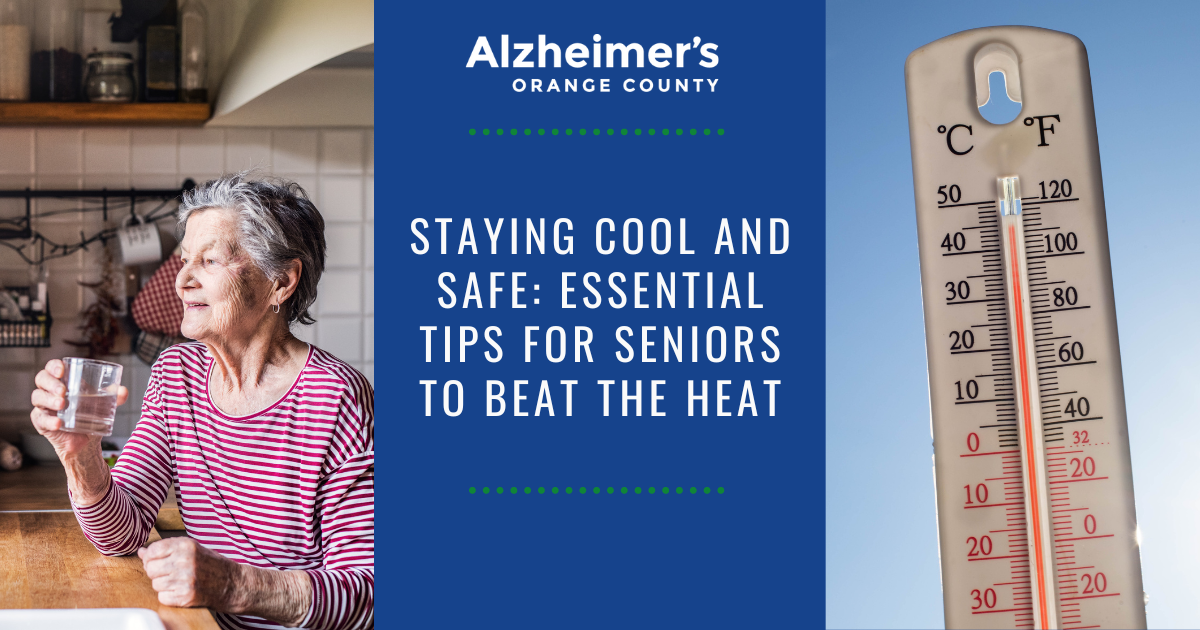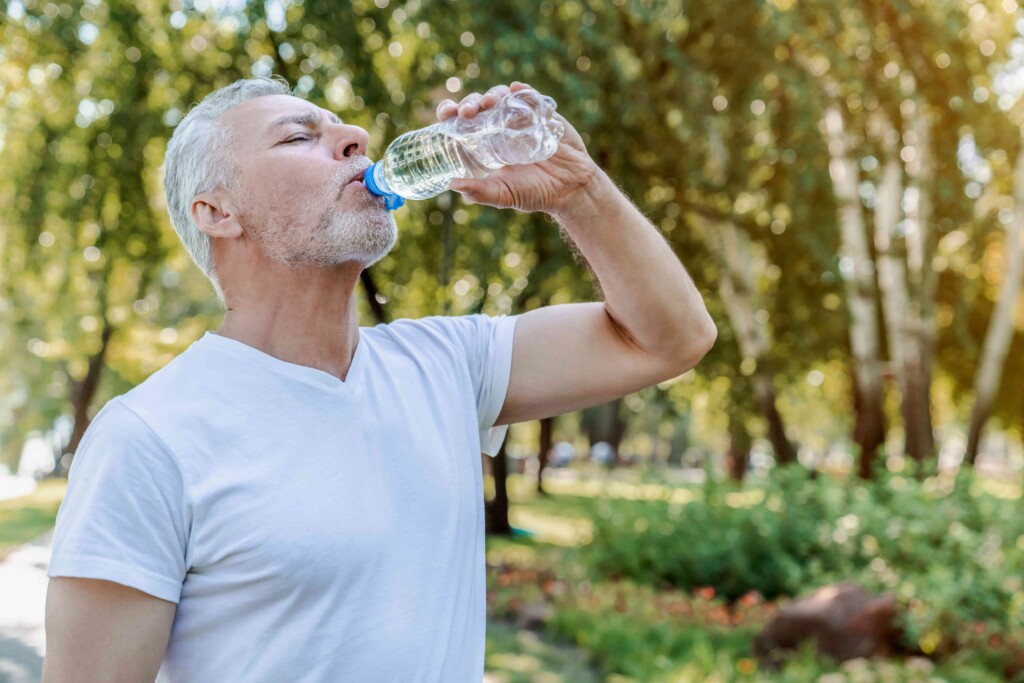Summer and sunshine are finally here, which means enjoying the warm weather. This also means elderly individuals and especially those with dementia are more susceptible to heat-related illnesses. For example, those with memory loss may forget to drink water and as a result, be more susceptible to dehydration. If you’re caring for a loved one, make sure to monitor them and take the proper precautions. Here are some tips to keep you and your loved ones safe.
Be Proactive
Check the weather ahead of time before making plans. This will help you understand how hot it will be and plan accordingly. Reconsider going outside when you expect higher than normal temperatures or try going out when the temperature goes down. If you do need to go outside, try to make your trip brief and make sure to follow the proper precautions to keep your loved one cool and hydrated.
Try this: Avoid being outside or being directly in the sun around midday when the day is usually at its hottest.
Staying Hydrated
Elderly individuals are more prone to heat exhaustion due to age, but certain medications can also make them more susceptible to dehydration. Drinking water is crucial. It’s easier said than done and often easy to forget, but there are ways to make it easier.
Try this: Use a reusable water bottle and label it with goals for how much water your loved one should drink throughout the day. You can do this by writing the number of ounces on the bottle, and the time of day it should be drunk.
Staying adequately hydrated can be difficult for a variety of reasons. For instance, some find the flavor of water too plain so they may not enjoy drinking it as much as other drinks. Consider trying one of the following tips to encourage water consumption:
- Use water flavoring drops like Mio to your loved one’s liking.
- Add fruit such as lemons, pineapple, berries or other fruit you prefer as a natural and healthy way to add flavor. Soak the fruit overnight for a more enhanced flavor.
The Dangers of Heat
Too much heat can be harmful and lead to heat-related illnesses. One example is heat stroke. Heat stroke can be bad for your brain. When the body overheats, this can cause one’s mental state or behavior to be altered. This can also trigger hallucinations even for someone who doesn’t show regular signs of mild cognitive impairment.
Heat syncope risk is higher in the warmer months. This is a fainting episode that one experiences during high temperatures and heat exposure. To avoid this, if your loved one takes blood pressure medication, make sure that they are taking it correctly. If they feel faint, have them rest, hydrate and if possible, elevate their feet to get the blood pumped back up to their brain and head. Remember, when someone feels dizzy, they are at increased risk of falling which can lead to a potential hospital visit, or worse, brain damage if they hit their head. Do what you can to avoid it and if your loved one begins to experience dizziness make sure to quickly address it. See a list of other heat-related illnesses and how to treat them here.
Stay Cool
Wherever your loved one spends their time, make sure there is a shaded area available to them and try to stay in the shade as much as possible.
Try this: When you’re outdoors and there’s no shade, use an umbrella to protect your loved one from the sun.
In public, make sure your loved one is not outside alone. Think ahead about things they might need while spending long amounts of time outdoors including:
- Water
- Food or snacks
- Sunscreen and lip balm
- A hand fan or battery-powered handheld fan
- A sun hat, an umbrella and weather-appropriate clothing.
It’s also a good idea to create a plan of action if an accident should occur.
Fire Warnings
Warmer, drier weather usually also means a higher risk of fires which can be hazardous. Fires can cause the air quality to temporarily deteriorate. If a fire breaks out near where you live and the air quality worsens you can place wet towels under larger door frames or windows. This will help keep the indoor air clean air and prevent contaminated air from flowing inside through any small openings. Stay alert to local directives and evacuation orders and proceed accordingly.
Tips for Home
Make sure that there is sufficient airflow to keep cool. If you don’t have air conditioning, you can use fans to ensure airflow and reduce the heat. Oxygen and air circulation is crucial to help the brain and body function. It’s also good to know where the local “cooling centers” in your area are. These can be located in places like shopping centers and libraries. See a list of cooling centers available in Orange County here.
Heat safety tips are helpful for any time of the year, but extra precautions should be taken during the summer months. Remember, stay cool, stay safe.
Related Information
Caregiver Conference: Connection & Renewal
Join Alzheimer’s Orange for this special event for family caregivers for a day of inspiration, connection and empowerment. Learn more.
Everyday Care
View and download caregiver topic sheets to learn more about everyday care. View here.
Educational Classes
Enroll in our free classes to better understand brain health and dementia topics and learn practical strategies and techniques you can use in your life. Learn more here.



